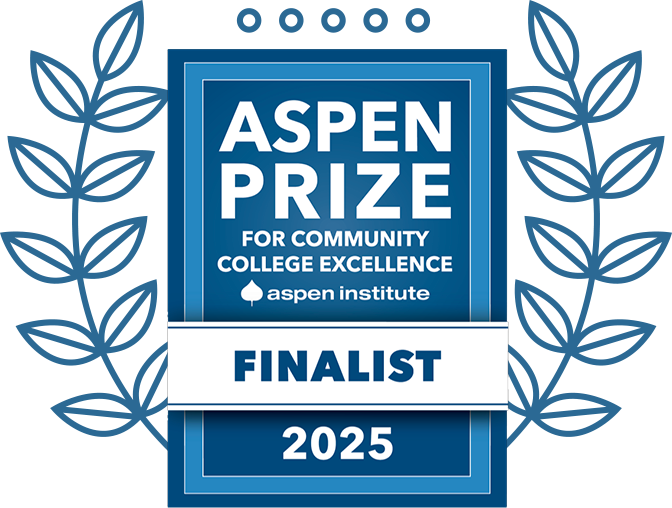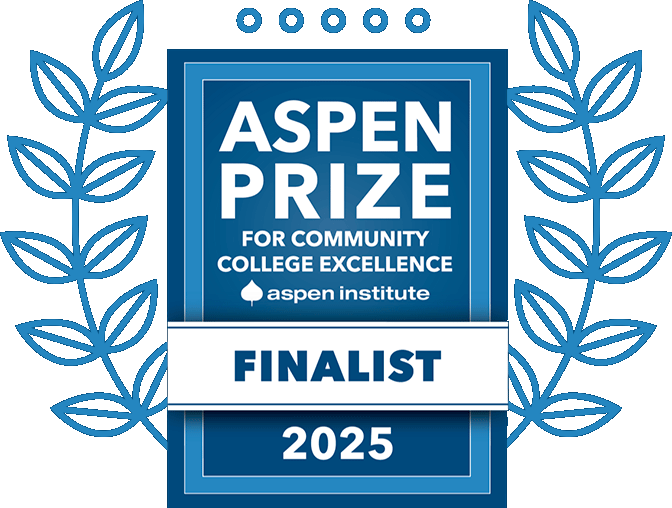Advising Tools/Guides
Below are resources to help you advise your students:
Tools
DegreeWorks is an advising tool, an unofficial "road map," to keep students informed of their required and optional coursework and other degree requirements. The audit is automatically updated each semester, showing courses completed, grades earned, GPA, holds, and other useful information. While DegreeWorks is not official for graduation purposes, it is generally useful for showing what classes a student has left to take but not the order in which they should take those classes. It is color-coded, making it easy to read and helpful at-a-glance.
On the side toolbar, there is a What If option that can be helpful for seeing what classes a student needs if they are thinking about switching majors.
Questions about a course placement? Or why a course is not counting where it should? Contact Sherri Beideck in the Registrar’s Office.
The Navigate platform combines predictive analytics and communication tools for academic advising and tutoring. On the advising side, advisors have the ability to organize, track, and message all of their assigned students as well as to create academic plans for each of them semester by semester until graduation.
Navigate compliments DegreeWorks and also pulls data from Banner, and it is updated nightly.
Login for Faculty/Staff of Navigate
Need more help with Navigate? View our Navigate How-To Tutorials.
When advising students, be aware of important dates and deadlines. The specific dates for the current semester can be found online by checking the official academic calendar. Listed below are some deadlines to become familiar with on the academic calendar:
- Tuition deadlines – can be found on a student’s schedule/bill or are also posted by the Business office.
- Course registration deadlines, such as the first day to register for classes for an upcoming semester, the last day to drop a course, or the last day to withdraw from a course.
- Graduation date
- Holidays, breaks, when campus will be closed, etc.
- When grades are due/will be posted
The important dates for the different course session types are also posted by the Registrar’s office.
Orientation dates are posted on the Orientation website.
If a student has completed an Advanced Placement exam, they may be exempt from taking a corresponding course(s) or granted college credit for their degree here at GHC.
If a student does not see their AP credit reflecting in DegreeWorks, verify that they had their AP scores sent from CollegeBoard.
The following chart lists the AP test scores recognized by GHC:
View AP Test Scores
The College-Level Examination Program (CLEP) enables students the opportunity to take exams in order to obtain college level credit. Before a student registers for a CLEP exam, it is recommended they speak to their advisor to determine how credit(s) apply to their specific pathway.
The following chart lists the CLEP subject exams recognized by GHC:
View CLEP Test Scores
Students may have a hold on their account and may not be familiar with how to resolve it. The handout below lists all the most common holds and how to resolve the hold, if they are able to -- they may have to contact a specific department for assistance.
View Registration Hold Reference
Students may ask about the differences between synchronous and asynchronous in order to make an ideal schedule.
This can be confusing, so we created this handout to show the breakdown of the similarities, differences, what's required, etc.
View Synchronous vs. Asynchronous Handout
Beginning Fall 2020, STAT 1401 can be used in Area A for the pathways listed below. All pathways below can use MATH 1001, 1111, and STAT 1401 for Area A, but there are some pathways with the strong recommendation of taking STAT 1401 for Area A.
Students who take STAT 1401 for their Area A Math can then take STAT 2401 (Intermediate Statistics) for their Area D Math. They can also choose to go back and take MATH 1001 or 1111, and then use STAT 1401 for their Area D Math.
View Area A Math Recommendations Handout
How To
All faculty and staff with access to student records are responsible for upholding student privacy rights in accordance with the Family Educational Rights and Privacy Act of 1974 (FERPA). FERPA, also known as the Buckley Amendment, helps protect the privacy of student records. The Act provides for the right to seek to amend those records and to limit disclosure of information from the records. The Act applies to all institutions that are recipients of federal funding.
Learn more information about this through the Registrar’s office.
When a student would like to change their pathway/major, they need to complete the online Program of Study Update form. Make sure to explain to the student that there is processing time to officially change their pathway, so until then, they can utilize the What If function in DegreeWorks and/or use the program pathway checklists.
This can also be found in the student portal under Advising Resources under Change Major/Minor.
Registrar Forms
Concentrations are required to declare within specific pathways, and minors are optional courses to add that fit within a bachelor's degree program.
The concentration requirements are listed within a pathway checklist, and the minor requirements are a separate checklist found under each bachelor's degree that allows minors. These checklists can be found on our Advising Program Checklists website. Also, refer to the Concentrations & Minors Handout to learn more about each requirement and what is currently offered.
Core IMPACTS is a rebrand of the USG core curriculum to ensure that students acquire essential knowledge in foundational academic areas and develop career-ready competencies.
Learn more on the Core IMPACTS website.
Each student who plans to graduate from GHC must complete the Graduation Application Form at least one semester prior to the term of degree completion.
The student will be sent an evaluation of their course credits and advised of any requirements needed to graduate within 2 to 4 weeks after submission of the application. During peak time, this may be longer. Be sure to make sure the student’s address on file is still correct. More information about graduation, such as commencement and reverse transfer, can be found on the Registrar's website.
After the add/drop period, a student can no longer drop a course but can withdraw from it and will receive a “W” for the course as long as it happens before a withdrawal deadline. Be sure to check specific deadlines posted by the Registrar’s office.
A "W" does not affect the student's academic GPA, but it does affect their financial aid and satisfactory academic progress (SAP) if they receive financial aid. Before a student decides to withdraw, we always recommend that the student contacts financial aid and ask about how this may affect them.
Steps to Withdraw
If a student has missed a withdrawal deadline but is interested in withdrawing due to a hardship situation - such as a personal injury or illness; family injury, illness or death; or an employer-initiated job change – they have the option to submit a hardship withdrawal.
Hardship withdrawals must be filed by the end of the academic semester immediately following the academic semester for which hardship status is sought.
Hardship Withdrawal Instructions
You may work with a student with learning support requirements. We recommend using this handout below to help these students determine which learning support classes they may need. Please reach out to the Learning Support Coordinator with further questions.
Learning Support – How to Register
Curriculum substitution is a form completed when a student would like to request that a course count towards their degree requirements. The form requires a signature from the student, their advisor, division chair/dean, and the registrar. If the course was taken at a college/university other than Georgia Highlands College, then the course description from the college/university catalog must be attached.
This can be a lengthy process due to all the required approvals.
Registrar Forms
When advising students, some of their decisions may be based on financial aid eligibility and policies. We always encourage students to reach out to the financial aid department directly (email: finaid@highlands.edu) before making a final decision, but it is helpful to know basic tips and tricks. View the video below to learn more.
Video Tutorial: Financial Aid for AdvisingStudents may want to see what the requirements are for a different major and possibly see how their previous credits would apply. They can see that by using the What-If feature in DegreeWorks. Use the video tutorial below to send to students to help walk them through how to use that feature and begin planning.
Video Tutorial: What-If Feature in DegreeWorksResources
Transfer Advising
Students transitioning to their next transfer four-year colleges and universities after graduation can be overwhelmed with options. Visit the transfer advising page to view more information on how to make that transition easier, such as contact information for transfer admissions counselors, our annual Next Step Fair, when colleges/universities schedule campus visits, and more.
Learning Support
Learning Support is a statewide program designed to help students progress academically.


